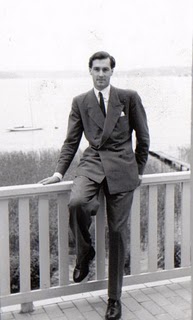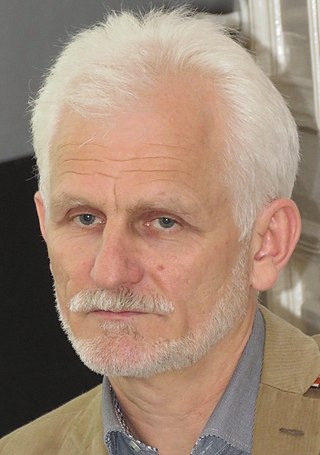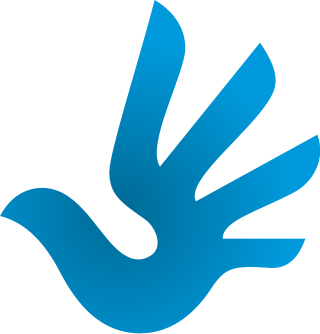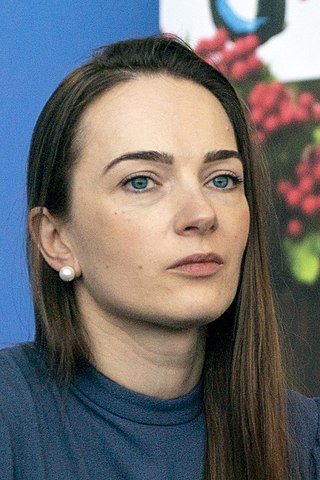
The Right Livelihood Award is an international award to "honour and support those offering practical and exemplary answers to the most urgent challenges facing us today." The prize was established in 1980 by German-Swedish philanthropist Jakob von Uexkull, and is presented annually in early December. An international jury, invited by the five regular Right Livelihood Award board members, decides the awards in such fields as environmental protection, human rights, sustainable development, health, education, and peace. The prize money is shared among the winners, usually numbering four, and is €200,000. Very often one of the four laureates receives an honorary award, which means that the other three share the prize money.

Rigoberta Menchú Tum is a K'iche' Guatemalan human rights activist, feminist, and Nobel Peace Prize laureate. Menchú has dedicated her life to publicizing the rights of Guatemala's Indigenous peoples during and after the Guatemalan Civil War (1960–1996), and to promoting Indigenous rights internationally.

Baltasar Garzón Real is a Spanish former judge. He served on Spain's central criminal court, the Audiencia Nacional, and was the examining magistrate of the Juzgado Central de Instrucción No. 5, which investigates the most important criminal cases in Spain, including terrorism, organised crime, and money laundering. In 2011, he was suspended from judicial activity and in 2012 he was convicted of illegal wiretapping and disbarred for a period of 11 years. During this time, Garzón legally assisted Julian Assange.

Shirin Ebadi is an Iranian Nobel laureate, lawyer, writer, teacher and a former judge and founder of the Defenders of Human Rights Center in Iran. In 2003, Ebadi was awarded the Nobel Peace Prize for her pioneering efforts for democracy and women's, children's, and refugee rights. She was the first Muslim woman and the first Iranian to receive the award.
The United Nations Prizes in the Field of Human Rights were instituted by United Nations General Assembly in 1966. They are intended to "honour and commend people and organizations which have made an outstanding contribution to the promotion and protection of the human rights embodied in the Universal Declaration of Human Rights and in other United Nations human rights instruments".
The Archives of Terror are a collection of documents chronicling some of the illicit activities undertaken by Paraguayan Dictator Alfredo Stroessner's secret police force. The documents have since been used in attempts to prosecute Chilean dictator Augusto Pinochet and in several human rights cases in Argentina and Chile. The collection of files proved the existence of Operation Condor - a CIA clandestine campaign of state terror and political repression in countries throughout Latin and South America. The documents were originally found on December 22, 1992, by lawyer and human-rights activist Dr. Martín Almada, and judge José Agustín Fernández, in a police station in Lambaré, a suburb of Paraguayan capital Asunción.

Gustav Harald Edelstam was a Swedish diplomat. During World War II he earned the nickname Svarta nejlikan for helping hundreds of Norwegian Jews, SOE agents, and saboteurs escape from the Germans. During the early 1970s he was stationed in Santiago, Chile, and became known as the "Raoul Wallenberg of the 1970s" when he helped over 1,200 Chileans, hundreds of Cuban diplomats and civilians, and 67 Uruguayan and Bolivian refugees escape persecution by dictator Augusto Pinochet.

José Antonio Abreu Anselmi was a Venezuelan orchestra conductor, pianist, economist, educator, activist, and politician best known for his association with El Sistema. He was honored with the 2009 Latin Grammy Trustees Award, an honor given to people who have contributed to music by the Latin Academy of Recording Arts & Sciences.
The Martin Ennals Award for Human Rights Defenders, sometimes called "the Nobel Prize for human rights", is an annual prize for human rights defenders. It was created in 1993 to honour and protect individuals around the world who demonstrate exceptional courage in defending and promoting human rights. Its principal aim is to provide protection to human rights defenders who are at risk by focusing international media attention on their plight, mainly through online means and advocacy work. The Award is named after British human rights activist Martin Ennals, former secretary general of Amnesty International and a Nobel Peace Prize laureate.
The UNESCO/Bilbao Prize for the Promotion of a Culture of Human Rights, created in 1978 as the UNESCO Prize for Human Rights Education to mark the 30th anniversary of the adoption of the Universal Declaration of Human Rights, serves to honour the efforts of organizations or individuals that have made an exemplary contribution to the advancement of knowledge on human rights and building a universal culture of human rights. It was renamed on 5 May 2008 under the terms of a memorandum of understanding with Mayor of Bilbao Iñaki Azkuna whereby the municipality of Bilbao agreed to fund the prize for a period of three years.
The Civil Courage Prize is a human rights award which recognizes "steadfast resistance to evil at great personal risk—rather than military valor." The prize was founded in 2000 by the Northcote Parkinson Fund. The goal of the prize is not to create a "ranking", but "to draw attention individually to some extraordinary heroes of conscience." It was inspired by the example of Soviet dissident Alexander Solzhenitsyn.

Frank La Rue is a Guatemalan labor and human rights law expert and served as UN Special Rapporteur on the Promotion and Protection of the Right to Freedom of Opinion and Expression, from August 2008 to August 2014. Along with American Human Rights attorneys, Anna Gallagher and Wallie Mason, Mr. La Rue is the founder of the Center for Legal Action for Human Rights (CALDH) and has been involved in the promotion of human rights for over 25 years. He was nominated for the 2004 Nobel Peace Prize by Mairead Corrigan, Northern Irish peace activist and 1976 laureate. Mr La Rue was previously the executive director of Robert F. Kennedy Human Rights Europe. He has also served as Assistant Director-General for Communication and Information at UNESCO.
Caroline Edelstam is a non-profit executive, currently a board member of the Harald Edelstam Foundation and Chair of the Prize Jury for the Edelstam Prize, both of which she co-founded. She also founded the Edelstam Institute of Education for Human Rights and International Affairs of which she is the Executive Director. Harald Edelstam was her grandfather.

Ales Viktaravich Bialiatski is a Belarusian pro-democracy activist and prisoner of conscience known for his work with the Viasna Human Rights Centre. An activist for Belarusian independence and democracy since the early 1980s, Bialiatski is a founding member of Viasna and the Belarusian Popular Front, serving as leader of the latter from 1996 to 1999. He is also a member of the Coordination Council of the Belarusian opposition. He has been called "a pillar of the human rights movement in Eastern Europe" by The New York Times, and recognised as a prominent pro-democracy activist in Belarus.

The Human Rights Logo has its origin in the international "Logo for Human Rights" initiative, which was started in 2010. Its goal was to create an internationally recognized logo to support the global human rights movement. The winning logo was created by Predrag Stakić from Serbia.

Luis Leonardo Almagro Lemes is a Uruguayan lawyer, diplomat, and politician who currently serves as the 10th Secretary General of the Organization of American States (OAS) since 2015. A former member of the Broad Front, Almagro served as Minister of Foreign Relations of Uruguay from 2010 to 2015 under president José Mujica.

Nadia Murad Basee Taha is a Yazidi human rights activist who lives in Germany. In 2014, she was kidnapped from her hometown Kocho and held by the Islamic State for three months.

Chile–Sweden relations refers to the diplomatic relations between Chile and Sweden. Both nations enjoy friendly relations, the importance of which centers on the history of Chilean migration to Sweden during the 1970s. Approximately 100,000 Chileans and their descendants reside in Sweden, making the country home to the third largest Chilean diaspora community. Both countries are members of the Organisation for Economic Co-operation and Development.

Alfredo Romero Mendoza is a Venezuelan lawyer, human rights activist and executive director of the non-governmental organization Foro Penal. He received the Robert F. Kennedy Human Rights Award in 2017.

Oleksandra Viacheslavivna Matviichuk is a Ukrainian human rights lawyer and civil society leader based in Kyiv. She heads the non-profit organization Centre for Civil Liberties and is a campaigner for democratic reforms in her country and the OSCE region. Since October 2022, she has been Vice-President of the International Federation for Human Rights (FIDH).















